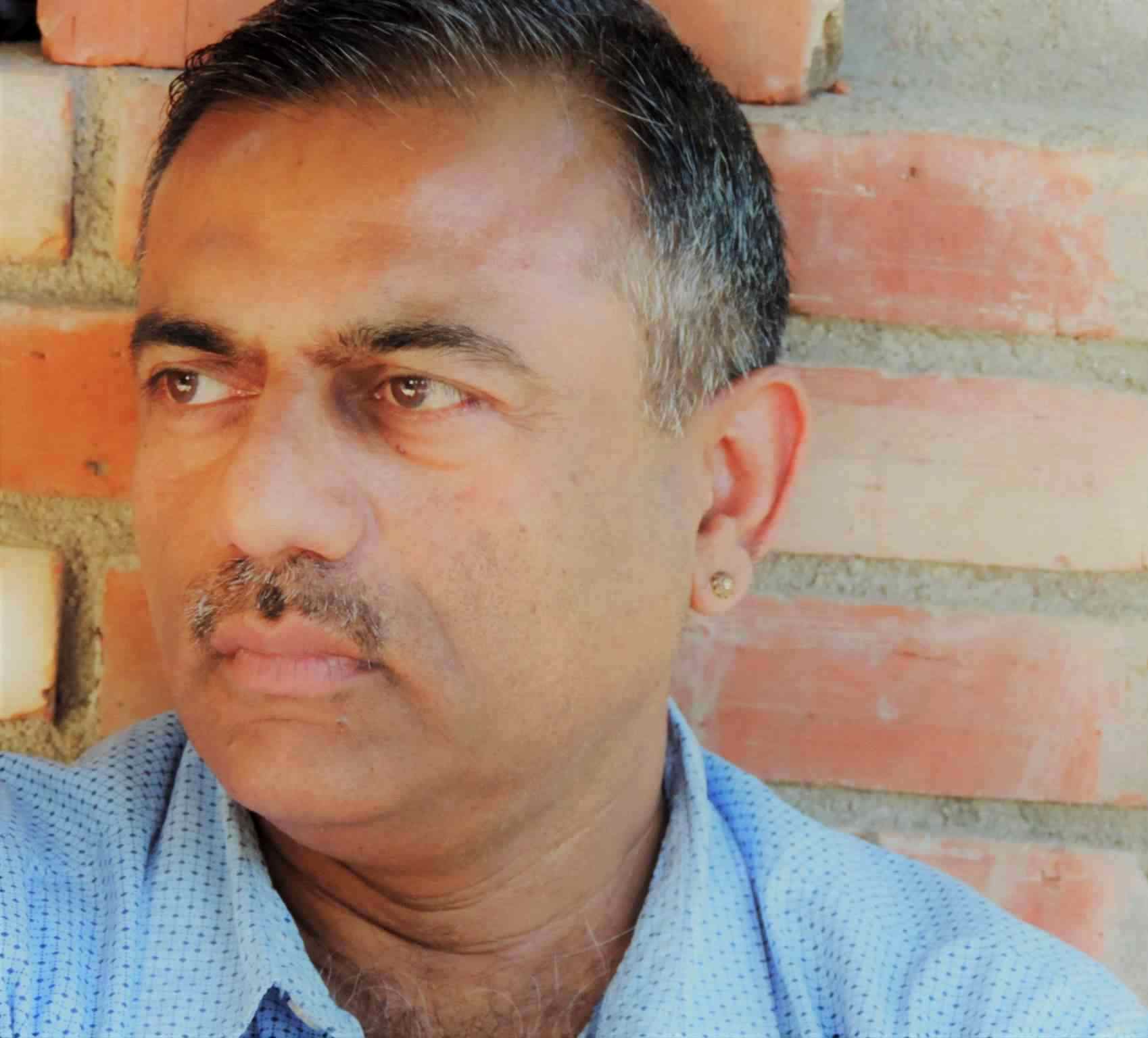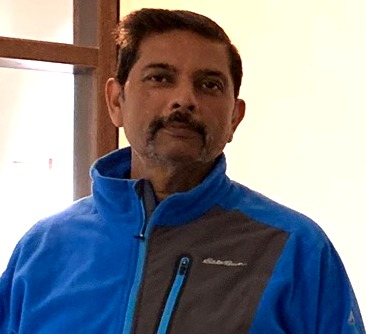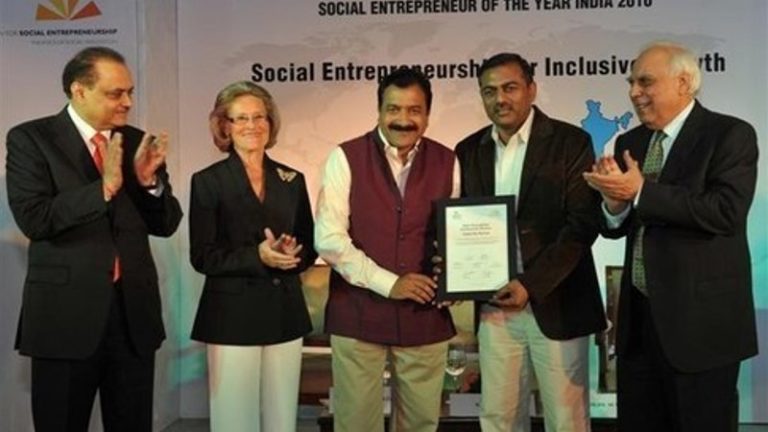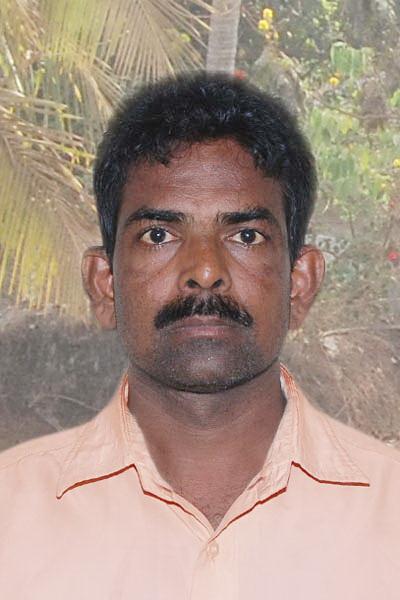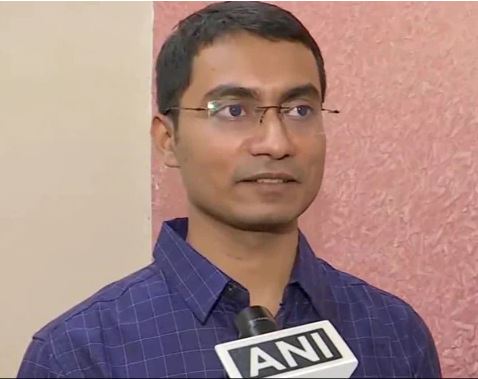Rajiv Khandelwal is Co-Founder and Executive Director of Aajeevika Bureau. In 2020, he appeared in the Karamveer Special of the game show KBC Season 12 (Kaun Banega Crorepati), hosted by Amitabh Bachchan. In which he played the role of Anand. Read details about Rajiv Khandelwal Wiki, Biography, Age, Wife, Girlfriend, Height, Instagram, Career, Body Measurement, Family & more.
Table of Contents
Biography/ Wiki
Rajiv Khandelwal was born in 1967 (Age as in 2020, 53 Years) in Sawai Madhopur, Rajasthan. He completed his schooling from Delhi Public School, Mathura Road (1982). In 1985, he completed his graduation in Bachelor of Commerce from Kirori Mal College, University of Delhi. After graduation, he worked with the Center for Environment Education setting up their Ranthambhore project in Sawaimadhopur district. He later moved to Udaipur and worked for agencies such as Astha and UVM. After taking a short break upon his father’s death to financially help his family, Rajiv returned to Udaipur and with a friend in 1998 and set up a research and consulting firm; Sudrak, to help other organizations in the sector develop strategies and plans on livelihood and other development issues. However, he soon realized that short term associations make little difference in the lives of the rural poor. For Rajiv, the rational route to solving problems of rural poverty lay indirect services to address specific needs, and thus the Aajeevika Bureau was born.
Height, Weight, Physical Appearance
Rajiv Khandelwal is Indian and he has black eyes and black hair. His height is 5′ 7″ and weight is 65 kg.
Family & Wife
Rajiv Khandelwal belongs to a Hindu Family. His father’s name not known and his mother’s name is Saroj Khandelwal. His brother’s name is Sanjeev Khandelwal.
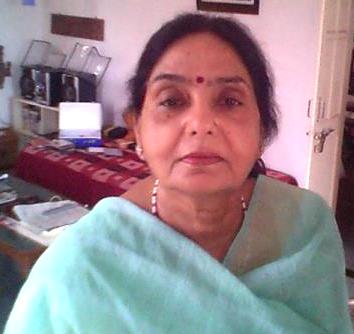
Career
Rajiv Khandelwal: It all started 15 years ago, when we saw our district’s group in Rajkot, Gujarat. We were shocked looking at 15-20 people living in a small, congested room, few of them were suffering from Tuberculosis, no signs of medical care, food, or other essential things. It was shocking looking at children, the families who have been working for years, had no money, no savings to survive. The whole condition was disturbing. For the first few days, we tried to interact with those people as they lived in our village and we knew them, but their living condition was an eye-opener for us. We knew we had to do something about the condition, the fact that we all work for a living but why is that these people are in such bad condition. I still remember having this conversation with my friend, and it has been 15 years now and we still continue to do what we started off as a helping hand. We know we are bringing smiles to many helpless families and children. In the year 2005, Rajiv Khandelwal became a co-founder and executive director of Trust Aajeevika Bureau, a non-profit, charitable trust registered in Udaipur, Rajasthan.
The New Idea
While migration and relocation have been integral to human history, seasonal migration is a growing phenomenon in India today. This migration is occurring not in isolated pockets, but across states and districts from regions that are resource-poor, disaster-prone, arid, or under-industrialized. With no fixed destination and a lack of marketable skills, this floating faceless population of migrants is exploited by contractors and middlemen and remains in a perpetual cycle of debt. Seasonal migrants say Rajiv Khandelwal, are “environmental refugees” who exist outside the formal political and economic system.
Rajiv has set up the Aajeevika Bureau in the city of Udaipur in southern Rajasthan to address the above realities and help transform the nature of migration. According to a United Nations Development Programme (UNDP)-Aajeevika study, 64 percent of rural households in southern Rajasthan report that migration accounts for 46 percent of household income. Rajiv’s target group is the seasonal, unskilled migrants who spend a total of more than three months away from their villages for 10 to 18 days at a time taking unskilled jobs that pay an average of Rs 60. Most of these migrants are primarily from lower castes and other marginalized communities and are illiterate or dropped out of school at an early age.
The bureau examines the specific needs of these migrants and equips them with basic skills that allow them to get more dignified city jobs that pay higher wages. It also provides destination counseling and assists with job placement, in addition to offering health, education, and legal aid services. These services are offered primarily in the point of origin for migration, but Rajiv is currently in the process of expanding to points of destination through a network of Aajeevika bureaus and partnerships with citizen sector organizations and businesses working in those areas.
Rajiv’s work is introducing an element of security into migrants’ lives. His bureau is altering entrenched social dynamics by creating an identity for migrants and according to legitimacy to their livelihoods through recognizing their integral role in the public domain.
The Problem
Migrant labor has existed in India since the era of British colonial rule when cheap labor was transported from state to state. In the last decade, however, the depletion of natural resources and the failure of the government to implement effective resource management programs have increased the number of rural poor forced to move to small and large urban areas in search of jobs. The problem is now endemic to resource-poor regions in every state in India that seasonally export labor to more prosperous areas.
Most migrants belong to the bottom of the social ladder, facing caste oppression, few job opportunities, exploitation and debt, and almost no land to cultivate. If a few manage to attend school, economic compulsions force them to drop out at an early age. They are then picked up by labor agents who supply cheap manual labor to factories, construction sites, infrastructure project sites, households for domestic work, and farms for seasonal agricultural work. One successful wave of migration leads many others to the same destination.
The families left behind often have no source of income except for the money that the migrant manages to send home. The labor agent who serves as the main contact between the migrant and his family extends advances to the families, and then the migrant is responsible for paying him back. Thus, a migrant often returns home after months of work with no money to spend on his family because it has all gone to this agent. Infectious diseases such as tuberculosis and HIV/AIDS further exacerbate the situation.
At the destination cities, the laborers deal with long work hours, ill-treatment from employers, low wages, no permanent shelter, and absolutely no access to services such as health, sanitation, or legal aid. Employers easily circumvent the Inter-State Migrant Workmen Act because there is no registration or licensing for those who employ migrants. With no access to formal savings mechanisms, migrants usually entrust their remunerations to labor agents or employers who often cheat them out of their hard-earned wages.
The Indian Government claims it is making efforts to reverse the trend of migration, but it has no clear resource management policies or job creation strategies to reflect this. In the meantime, the increasing numbers of migrants remain outside of all established civic and political systems.
The Strategy
India’s burgeoning economy relies on cheap labor. As Rajiv sees it, the challenge for his work lies in identifying economic opportunities that would be mutually beneficial to both businesses and migrants.
He has therefore divided his work into several clusters: identifying and training migrant laborers in new and marketable skills; job search and placement for wage laborers and migrants; registration, tracking, and communication services for migrants; shelter, health and financial services for migrant groups at origin and destination centers; education and training of children facing migration; and research and policy-related work for the protection of unorganized migrant laborers rights.
Rajiv has begun his work with those migrants who have minimal education and numerical skills and at least three years of migratory experience. Their destinations are the towns of southern Rajasthan and the highly industrialized neighboring state of Gujarat where they work in homes, factories, textile mills, mines, construction sites, farms, highways, ports, and harbors.
Migrants seeking employment with labor agents congregate at strategic points such as market places or bus and railway stations. The Aajeevika Bureau identifies migrants in these areas and the surrounding villages and registers them at the bureau. The bureau often trains village youth to disseminate information about the bureau on buses and sets up regular stalls at village junctions and marketplaces to spread the word about the bureau’s activities. The bureau also trains experienced migrants to serve as tracking and registration agents as they are most familiar with the migrants’ movement.
Those who register are then given aptitude and skills assessments and trained in fields like plumbing, masonry, carpentry, electrical wiring, gardening, or the hospitality industry as waiters, bellboys, and kitchen assistants. In addition, the migrants are given information on labor laws, rights, and security concerns, and are also groomed in etiquette and personal hygiene. The training is offered through a partnership that Rajiv has established with the government-run rural polytechnic school in Udaipur. Each migrant pays a subsidized registration fee, and those who cannot afford this are given low-interest loans.
Rajiv has also partnered with local building contractors and businesses to provide hands-on experience to trainees at job sites. Upon completion, migrants receive a certificate issued jointly by the polytechnic and Aajeevika and a set of clothes for placement interviews. Since April 2004, two sets of about 27 to 30 migrants have been successfully trained. The bureau also offers training to women as housekeepers, nannies, caregivers to senior citizens, and cooks. Thus far, five sets of these women have been trained.
The bureau places each registered migrant in one job. It performs thorough background checks on employers and negotiates fair and competitive wages, and ensures that women are given secure placements free of sexual harassment. The Bureau has also set up a migration support fund to provide financial assistance during initial hardships. The assistance begins with a “breakaway loan” aimed at weaning migrants away from labor contractors and loan sharks. In addition, the fund offers a “food loan” and a “transportation loan” that covers the migrant’s journey from his village to his destination. Further assistance such as “tool loans” and “uniform loans” cover initial accessories that a migrant might need for his/her trade. These loans are all repayable over a period of six months. Aajeevika also provides an “enterprise loan” for migrants who want to set up a seasonal business outside their villages, such as ice-cream and sugarcane juice vending.
Rajiv has recently established a partnership with ICICI, India’s second-largest bank, which has begun to view migrants as a promising client base and a group that needs services. Through this partnership, he hopes to set up financial services that are relevant including savings, credit lines, and remittance services through which migrants can safely and cheaply transfer money to their families.
The most innovative feature of the bureau’s work is creating a photo identity card for registered migrants. The ID card, which carries the local panchayat and the Aajeevika stamp, instills in the migrants a sense of legal status, acts as a referral for jobs, and protects the migrants against undue harassment. In the future, it may also help them gain access to the public distribution system for rations and government health care services. The identity card bears an emergency number that a migrant can call to access various services from a network of citizen sector organizations at destination points. Finally, the card helps Aajeevika create a valid database of migrants and helps to track them.
Aajeevika is setting up bureau offices in partnership with a network of citizen sector organizations and private section organizations in high migration areas. These partnerships will facilitate increasing registration numbers and offer a continuous flow of information and counseling to outgoing migrants while providing access to shelter, health, communication, financial services, legal aid in the case of wage frauds, etc. and other relevant services. One such partnership earlier was with Pratham in Surat, the organization of another Ashoka Fellow.
While most of Rajiv’s activities are concentrated on “facilitating migration,” he has recently started working toward delaying migration as well. Usually, migrant children enter the labor market at the early age of 9 or 10. Aajeevika has started working with a network of government-run rural schools to retain children until the age or 15 or 16 by offering supplementary education and training camps.
Rajiv’s ultimate goal is to set up a Migrant Labor Exchange by which Aajeevika can provide industries and businesses with professionally skilled labor and cater to specialized demands that would make it viable for both businesses and the Exchange.
The Aajeevika Bureau serves as a functional “how-to” model to be emulated in other high migration areas. For this, the bureau has launched an intensive research project that examines migratory patterns for several geographic regions. Coupled with the data collected through registrations and tracking, this study also aims to create a large database that forces the government to recognize the existence of migrants as a valid labor force and create change at the policy level.
Awards
- In 2005, he was named an Ashoka Fellow.
- In 2010, Rajiv received the Social Entrepreneur of the Year Award.
Some Interesting Facts About Rajiv Khandelwal
- He was born and bought up in Sawai Madhopur, Rajasthan.
- In 1987, he completed his Diploma in Rural Management at the Institute of Rural Management Anand, Gujarat. He says:
“It was then that I began to believe very strongly that there is a role for professionals in the development of the country.”
- Over the course of his 30-year career, Rajiv has held leadership roles in a range of non-profit organizations, implementing programs, conducting research, and providing advice and guidance to NGOs, donors, and government in Rajasthan.
- Rajiv worked for many years with the tribal communities of Southern Rajasthan, implementing large scale agricultural change programs.
- The idea of Aajeevika Bureau took seed at this time when Rajiv saw a significant change in livelihoods from farming to wage labor.
- In 2020, he appeared in the Karamveer Special of the game show KBC Season 12 (Kaun Banega Crorepati), hosted by Amitabh Bachchan.
Social Media Presence
👤 Facebook ➡️ Rajiv Khandelwal
📱Instagram ➡️ Rajiv Khandelwal
📜 Twitter ➡️ Rajiv Khandelwal
🌐 Wikipedia ➡️ Rajiv Khandelwal

